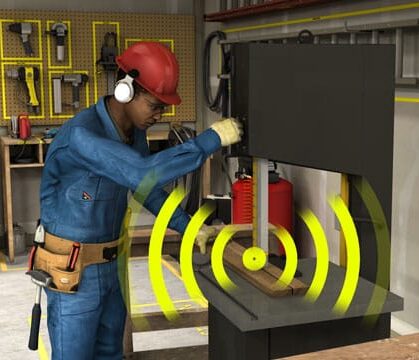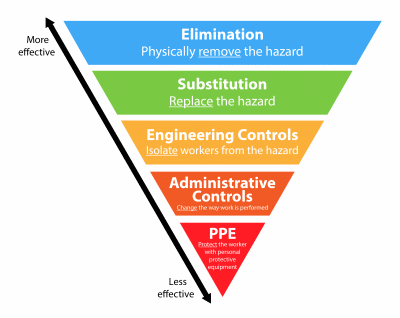July 19, 2024 15 min read
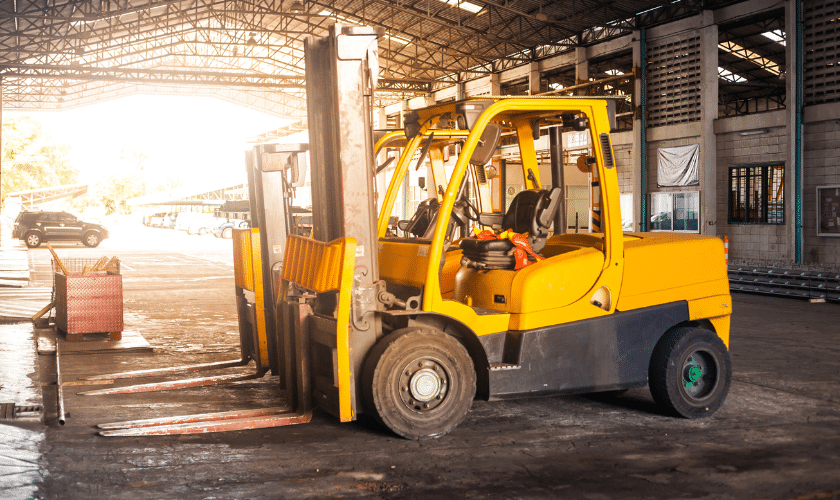
OSHA Forklift Certification and Training Requirements
Industry:
Solution:

Operating a forklift is an essential skill in industrial workplaces, but it’s not without risks. According to OSHA, only trained and competent operators shall be permitted to operate a powered industrial truck. In this blog, we’ll explain everything you need to know about OSHA forklift certification and training requirements, as well as provide resources to solidify proper health and safety training within your workforce.
Getting an OSHA Forklift Certification
It’s important to note that OSHA does not offer forklift certifications. However, OSHA’s Powered Industrial Trucks standard (29 CFR 1910.178) explains the minimum requirements that employers must meet when developing training requirements for forklifts.
Employers are responsible for ensuring that their forklift operators receive adequate training and are evaluated by a qualified person. This training must include both formal instruction and practical hands-on exercises to ensure operators can safely and effectively use the equipment in their specific work environment.
In the next section, we’ll go into OSHA forklift training requirements in more detail.
OSHA Forklift Training Requirements
OSHA spells out forklift certification requirements in standard 1910.178(I), which requires employers to develop and implement a forklift operator training program.
This OSHA standard requires employers to develop and implement a forklift operator training program. OSHA requires that the forklift training program must cover:
- General principles of safe forklift operation
- The type of vehicles being used, which refers to all Powered Industrial Trucks (PITs), including forklifts
- Hazards created by forklift use in the workplace
- OSHA’s general safety requirements for powered industrial trucks and forklifts
Ultimately, forklift training certifications are the employer’s responsibility to develop and administer according to OSHA standards.
Methods of Instruction for OSHA Forklift Training
According to OSHA, forklift training should include a combination of:
- Formal instruction. Lectures, discussion, interactive computer learning, videos, written materials, etc.
- Practical training. Demonstrations performed by a trainer and practical exercises performed by the trainee.
- Evaluation. Assessing each operator’s performance in the workplace.
Employing a blended method of instructional methods is the most effective way to fulfill OSHA forklift training requirements.
To set the scene for forklift training, check out this forklift safety training video:
OSHA Forklift Training: Operator Assessment and Demonstration
Before an employee can be a certified forklift or PIT operator, their employer must evaluate their performance to determine if they can safely and appropriately operate the forklift.
Employers may benefit from using mobile training apps where they can watch forklift operation demonstrations. Learning management solutions are also a great way to keep records of employee training and certifications.
OSHA Forklift Training: Truck-Related Training Topics
The OSHA forklift certification training an employer provides must include “truck-related topics,” as explained in standard 29 CFR 1910.178(l)(3)(i).
These truck-related training topics include:
- Operating instructions, warnings, and precautions for the type of forklift the employee will operate
- Differences between a forklift and an automobile
- Forklift controls and instrumentation, including where they are located, what they do, and how they work
- Engine and/or motor operation
- Steering and maneuvering
- Visibility, including restrictions due to loading
- Fork and attachment adaptation, operation, and use limitations
- Forklift capacity
- Forklift stability
- Vehicle inspection and maintenance that the employee will have to perform
- Refueling and/or charging and recharging of batteries
- Operating limitations of the forklift
OSHA Forklift Training: Workplace-Related Topics
Forklift operating training must also include workplace-related topics. These workplace-related topics can include:
- Surface conditions where the vehicle will be operated. This includes slippery conditions, uneven surfaces, surfaces with obstructions, floor load limits, and overhead clearance.
- Composition of loads to be carried. This includes load weight, load size, load position, load capacity, and maximum load moment.
- Load handling, stability, and balance. This includes safe handling preparation, approaching the load, mast position, fork position, lifting the load, lowering the load, high tiering, truck trailers, and railroad cars.
- Pedestrian traffic in areas where the vehicle will be operated. This includes rules and limits for using the forklift to move personnel and maintain distance from pedestrians.
- Narrow aisles and other restricted places where the vehicle will be operated. This includes any necessary training on reach trucks, order pickers, and safe stacking rules if applicable/necessary.
- Hazardous Locations where the vehicle will be operated. This includes training on designated locations, indoor air quality, and carbon monoxide.
- Ramps, grades, and other sloped surfaces that could affect the vehicle’s stability. This includes training for traveling with a load or traveling empty.
- Closed environments. These are areas where insufficient ventilation or poor vehicle maintenance could cause a buildup of carbon monoxide or diesel exhaust.
- Other unique or potentially hazardous environmental conditions in the workplace that could affect safe operation.

In some cases, an employee may have received training on one or more of these workplace-related topics before entering forklift operator training. When this occurs, and the training and conditions are appropriate for the type of forklift (and/or PIT) the worker will operate, then additional training is not required on that topic.
Managing and keeping track of employee training is essential. With our comprehensive learning management system (LMS), organizations can easily schedule, deliver, and track training to improve workforce performance and efficiency.
Online Industrial and Manufacturing Training Courses
Our award-winning content reduces downtime and keeps production running smoothly with engaging, interactive online courses for your industrial manufacturing employees.
View Courses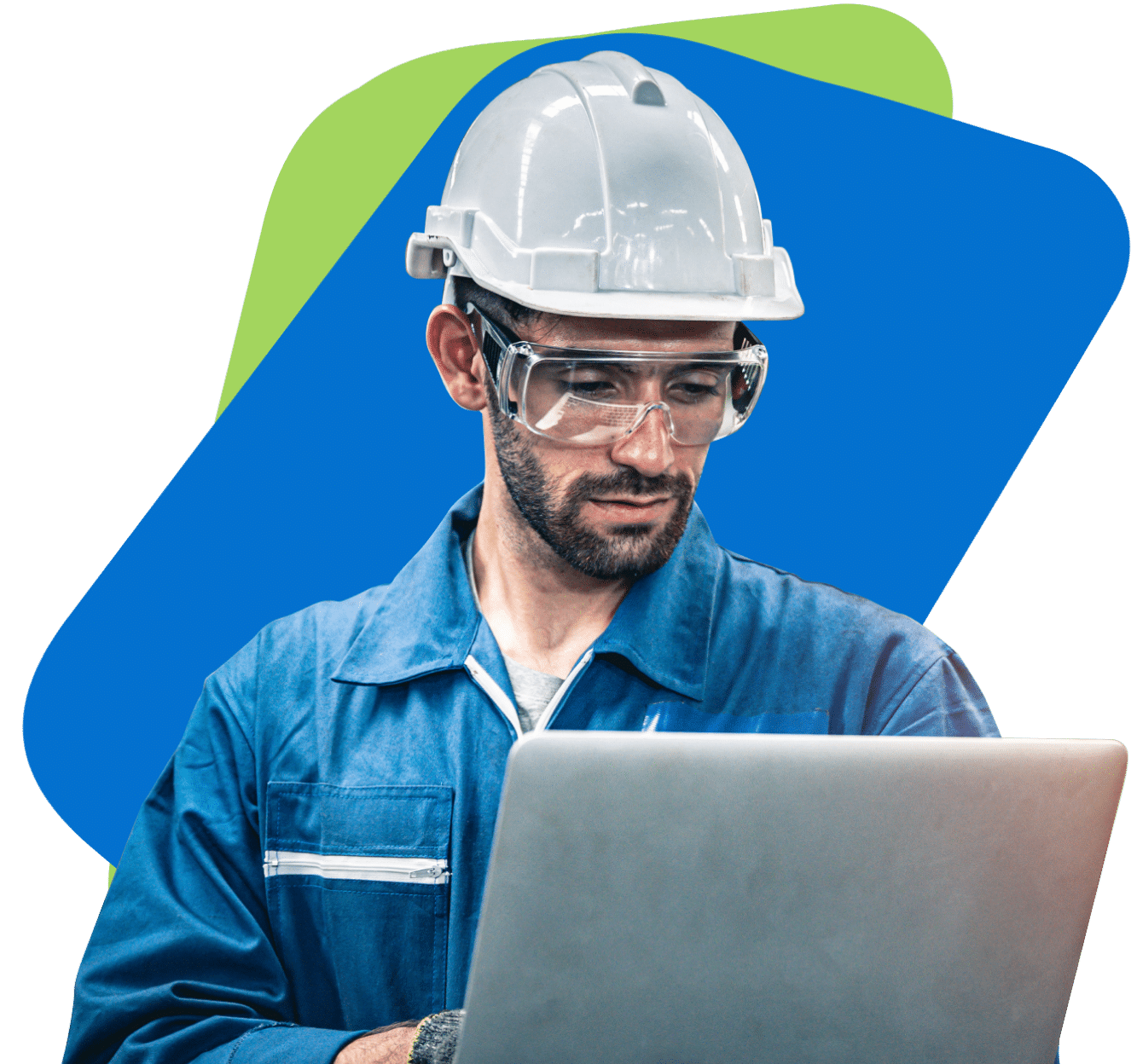
Trainee Operation of a Forklift
An employee receiving forklift training may operate a forklift only:
- Under the direct supervision of people who have the knowledge, training, and experience to train operators and evaluate their competence.
- Where the forklift operation does not endanger the trainee or other employees.
Employer Forklift Training Certification
It’s up to employers to provide the forklift certification to employees who have completed forklift training and are competent, certified forklift operators.
The certification provided by the employer must include the following information:
- Operator name
- Training date
- Evaluation date
- Name of person(s) performing the training or evaluation
An employee’s OSHA forklift certification isn’t complete without a certification that matches these requirements.
Forklift Operator Refresher Training
Once an employer has certified that an employee has passed their forklift operator training, the OSHA forklift certification isn’t effective indefinitely. Instead, it expires after three years.
It’s not always necessary for an employee to receive additional forklift operator training during this three-year period.
However, if a forklift operator demonstrates a deficiency in the safe operation of the forklift, or there are significant changes in workplace conditions, then refresher training is required. Refresher training is necessary when:
- The forklift operator is assigned to drive a different type of forklift.
- New workplace conditions could affect the safe operation of a forklift.
- The operator has been observed to operate the vehicle in an unsafe manner.
- The operator has been involved in an accident or near-miss incident.
- The operator received an evaluation revealing that they are not operating the PIT safely.

Conducting regular employee skills assessments is essential to ensuring your employees receive the refresher training they need. With Vector’s Competency Assessment Tool, explore how to close skills gaps, ensure safety and compliance, and increase productivity in the workplace. how to close skills gaps, ensure safety and compliance, and increase productivity in the workplace.
Vector Solutions’ Competency Assessment Tool
Explore how you can conduct pre-assessments for job applicants, improve onboarding, identify skills gaps, and more.
Learn More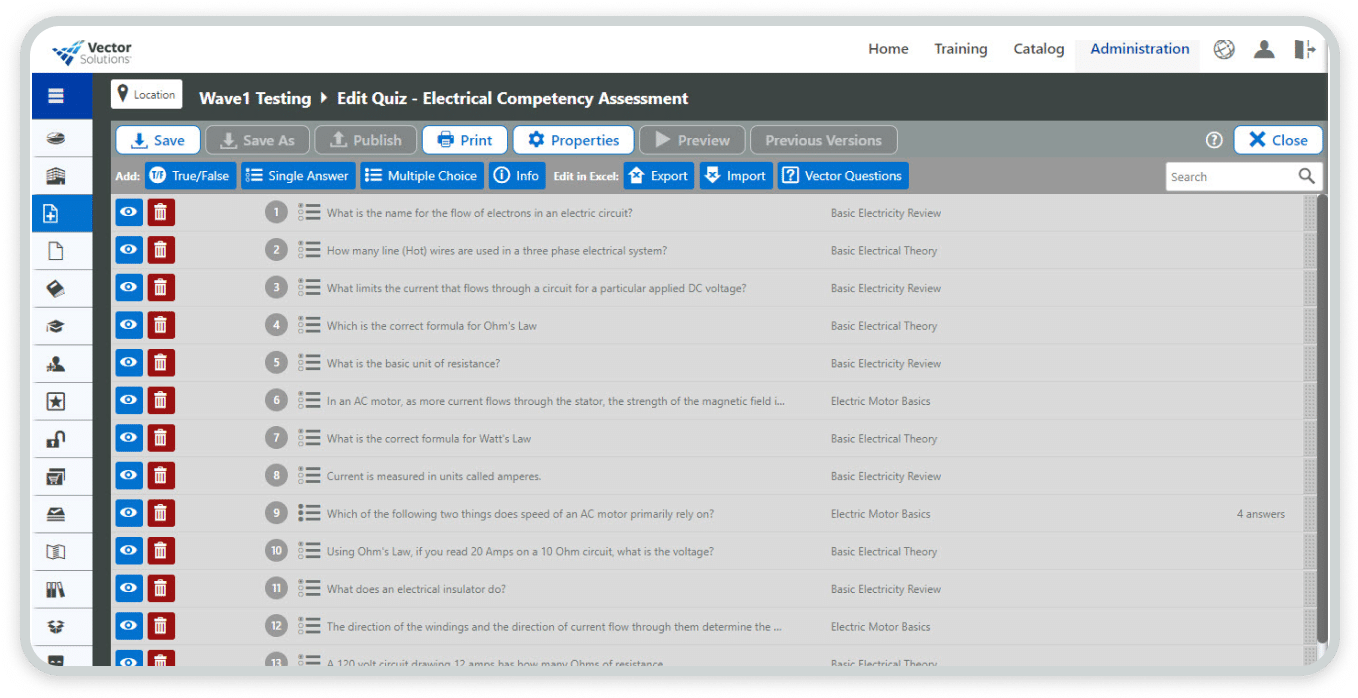
Forklift Training from Vector Solutions
Developing the right program for forklift operation training is key to maintaining a safe and productive workplace environment.
Vector Solutions offers numerous forklift safety and operation courses that can be used to build a world-class forklift training and certification program. Course examples include:
We also offer industry-leading EHS Management Software that can help you track forklift-related incidents and conduct safety inspections to address hazards proactively.
To learn more about how Vector Solutions can help with your forklift certification training, request a demo today.





